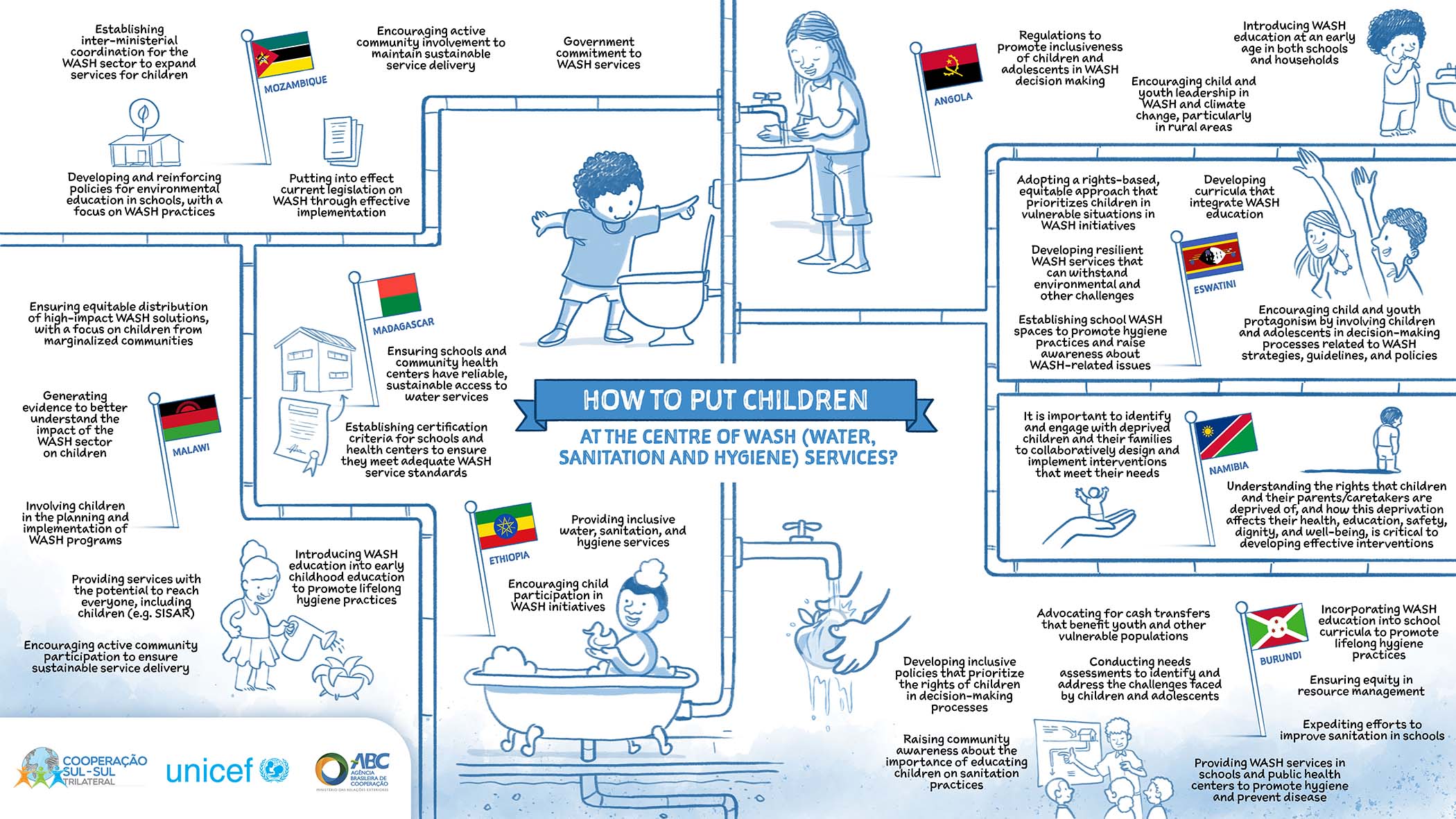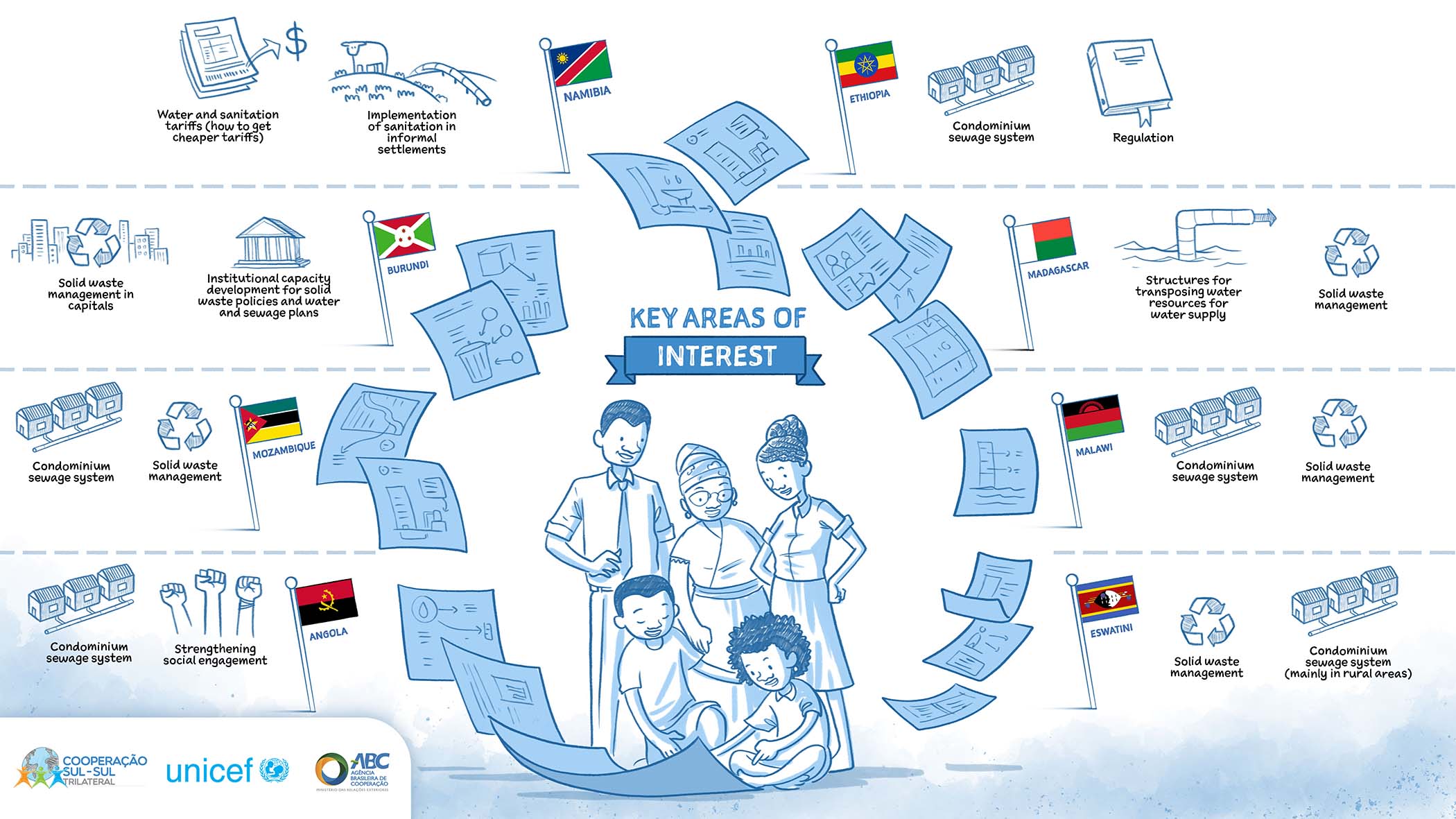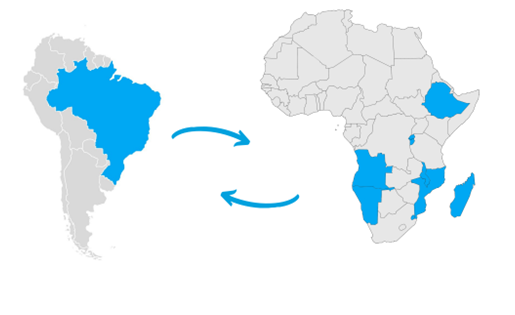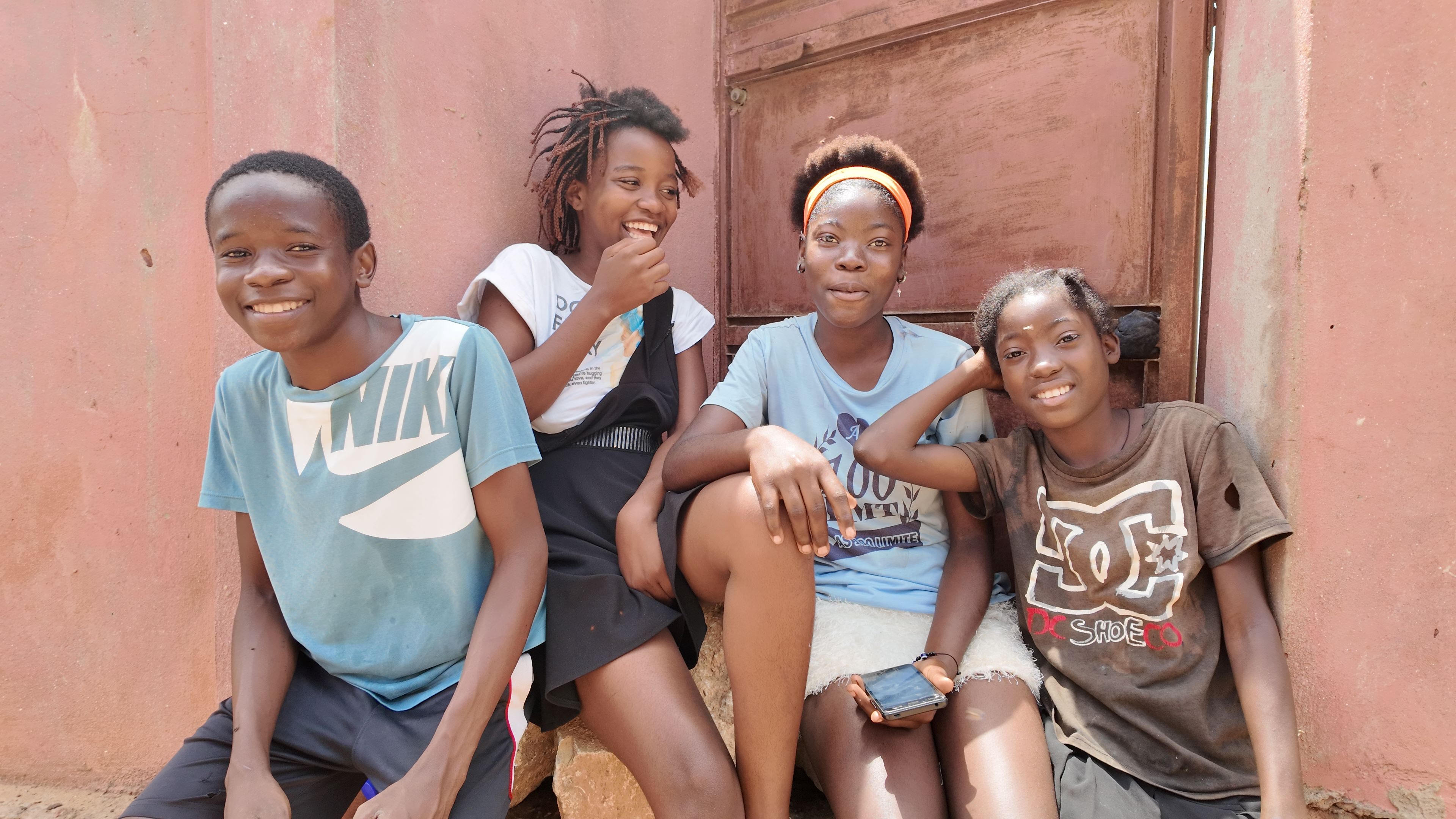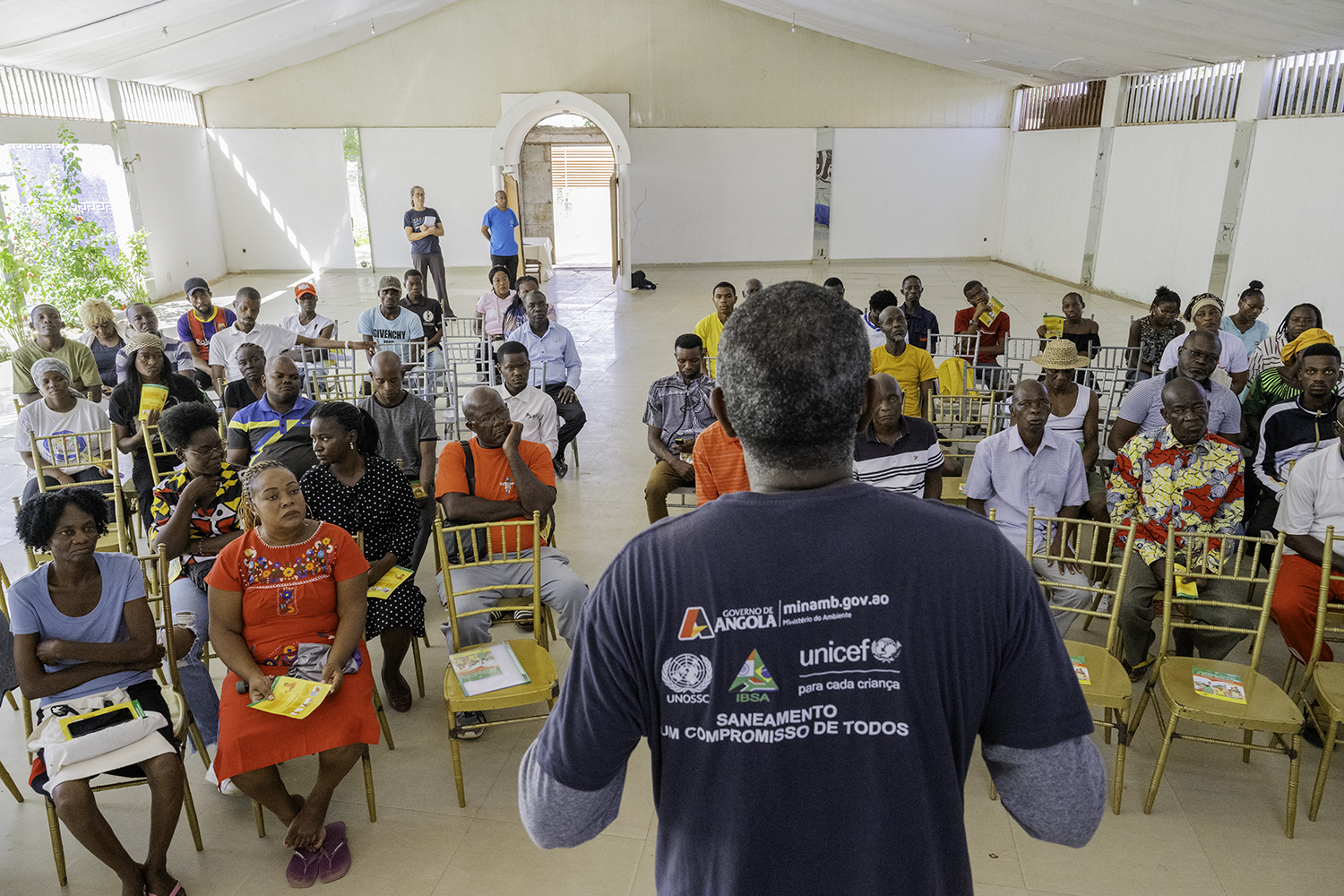Between November 7 and 11, 2022, the Brazilian Cooperation Agency (ABC) and the United Nations Children's Fund (UNICEF), in partnership with the Government of the state of Ceará, promoted a study visit of delegations from eight African countries (Malawi, Burundi, Angola, Namibia, Mozambique, Ethiopia, Madagascar, Eswatini) to Brazil, as part of the organizations' joint efforts to strengthen the Trilateral South-South Cooperation (TSSC) Agenda on Water, Sanitation and Hygiene (WASH), focusing on the rights of children and adolescents, through the exchange of experiences and technical cooperation between Brazil and other countries, especially those on the African continent.
Building on the previous TSSC experience between Brazil, UNICEF and the Government of Ethiopia, as well as the ongoing cooperation initiative with the Government of Angola (funded by the IBSA Fund), the mission served as a starting point for an expanded TSSC agenda in WASH with Africa, allowing participating countries to have first-hand technical experience on sanitation and water issues in Brazil, especially in the state of Ceará.
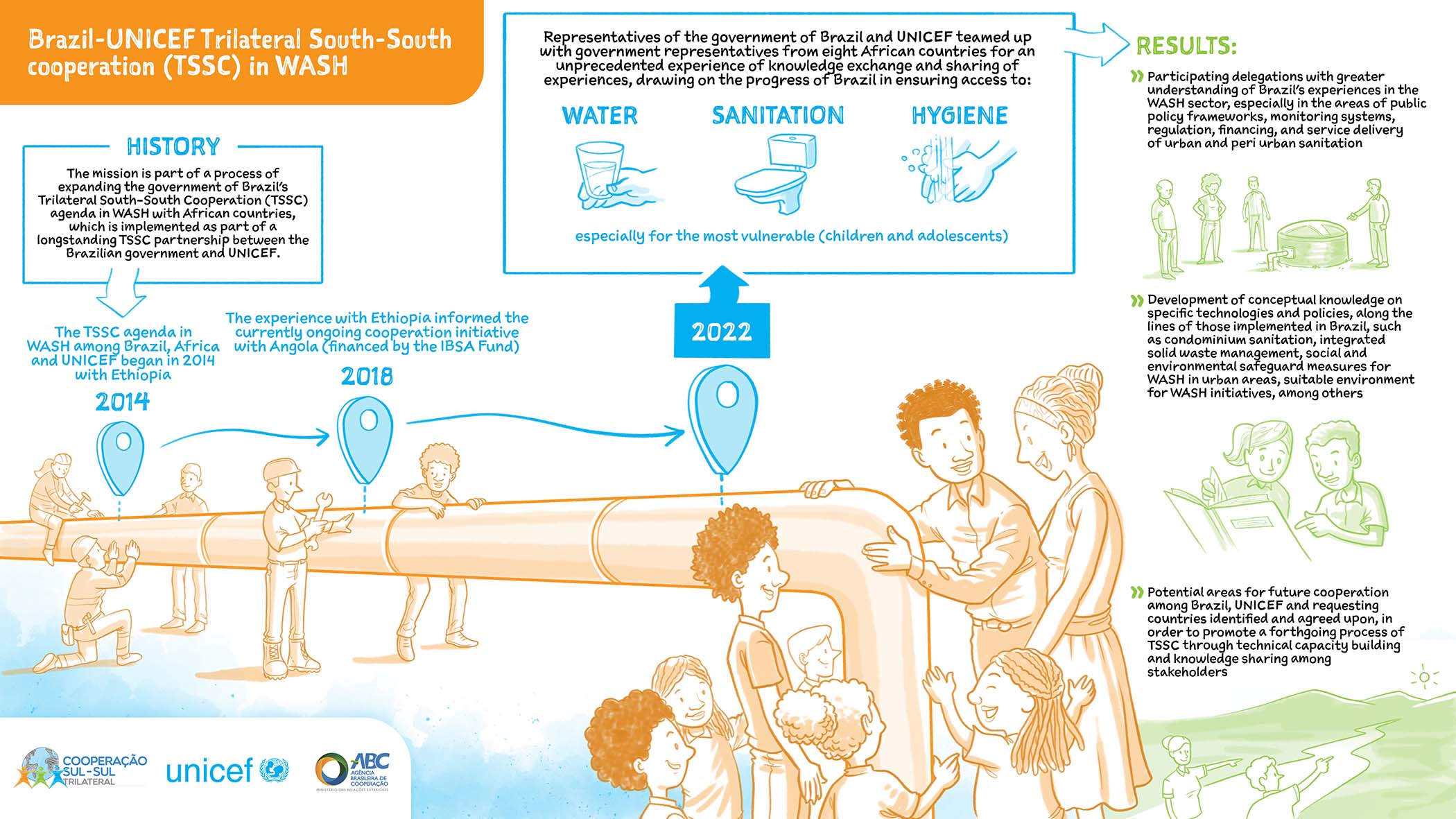
The objectives of the study visit were:
To present the Brazilian experience in the WASH sector (public policies, monitoring systems, regulation, funding and provision of urban and peri-urban sanitation services);
To share knowledge on sanitation technologies, approaches and specific policies (such as condominal sewerage, integrated solid waste management, social and environmental safeguards for WASH in urban environments, how to create the best environment to implement measures in the sector, etc.);
To identify potential areas for future cooperation between Brazil, UNICEF and interested countries.
The mission resulted in increased knowledge on how the WASH sector is organized and coordinated in Brazil across the three levels of administration at the level of legal frameworks and regulation, policies, and financing. Hands-on learning was also promoted, especially around solutions of simplified sewage systems in urban areas, solid waste management and rural water supply and sanitation. In addition, key lessons from prior SSC between Brazil and Ethiopia and current SSC between Brazil and Angola were also shared and discussed.
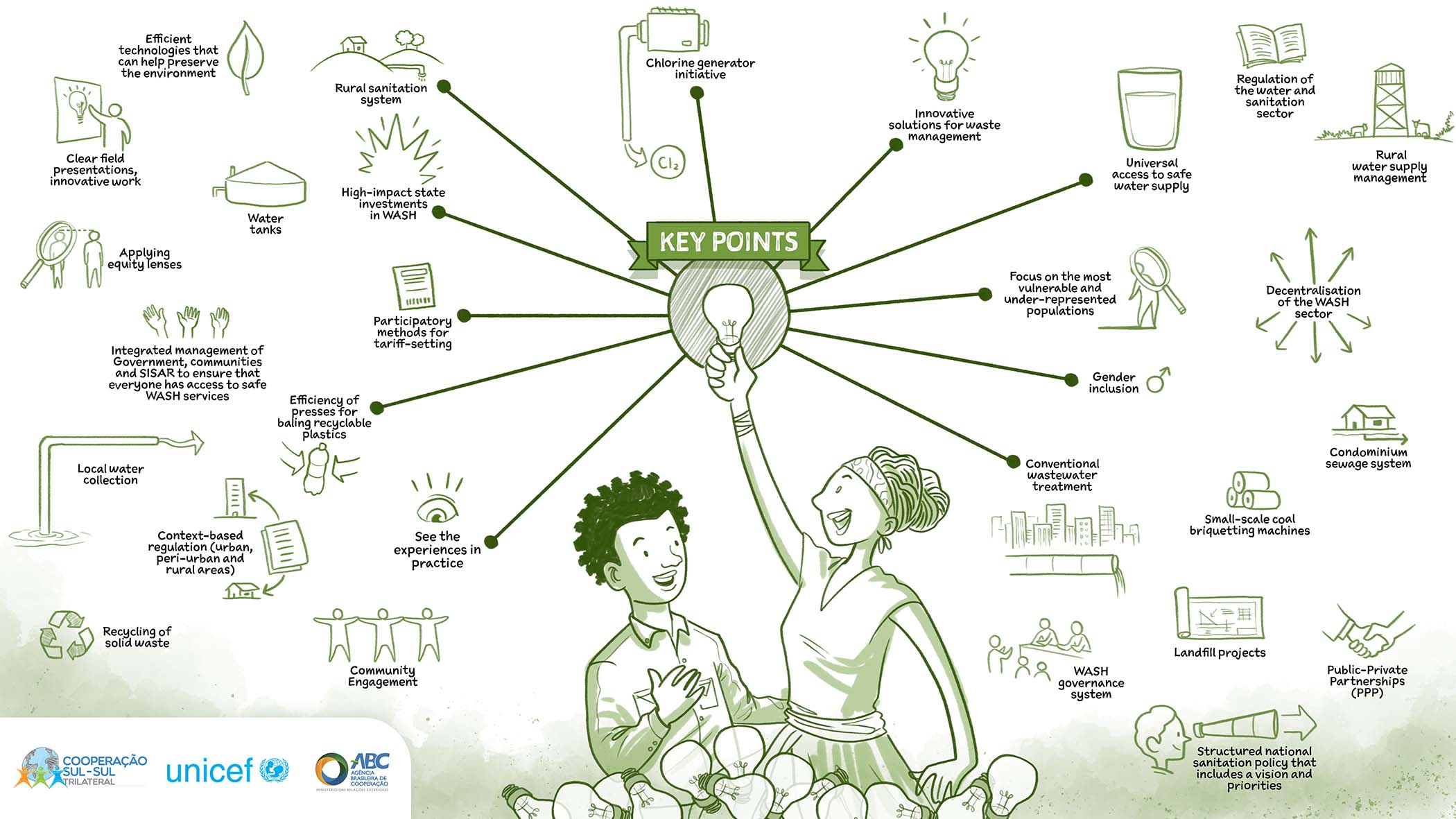
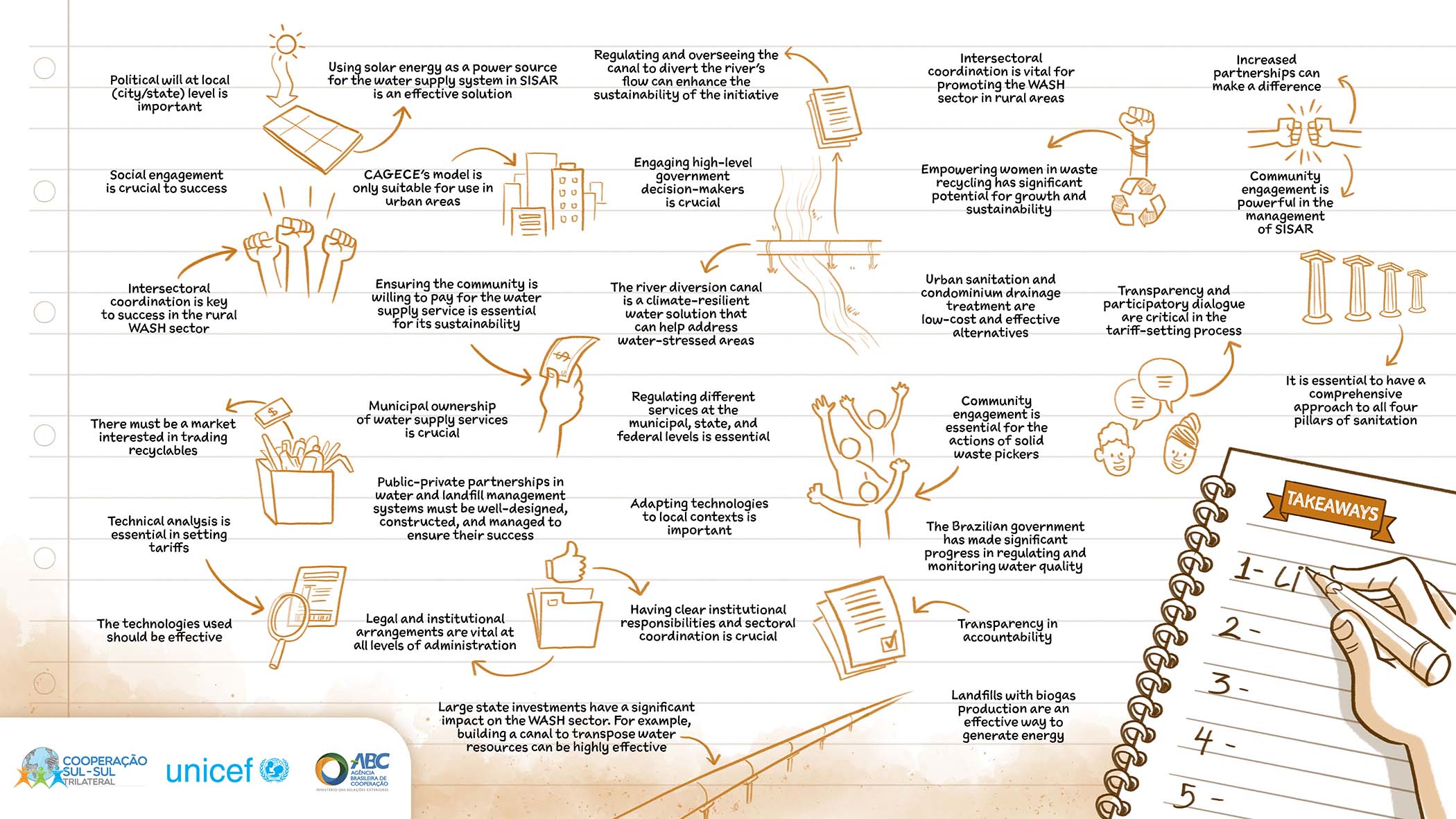
The key lessons learned from the previous project between Brazil and Ethiopia and the ongoing project betwen Brazil and Angola were also shared and discussed, which contributed to a larger scope of sharing and mutual learning.
At the end of the mission the delegations engaged in an exercise of identifying mechanisms that promote child-rights as a central aspect of any WASH agenda. Key areas of interest for potential future cooperation with Brazil of each of the participating country delegations were also mapped out.
